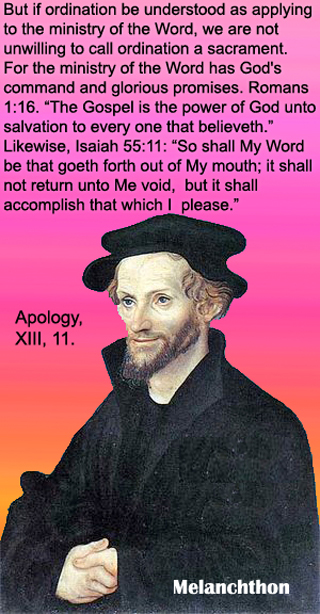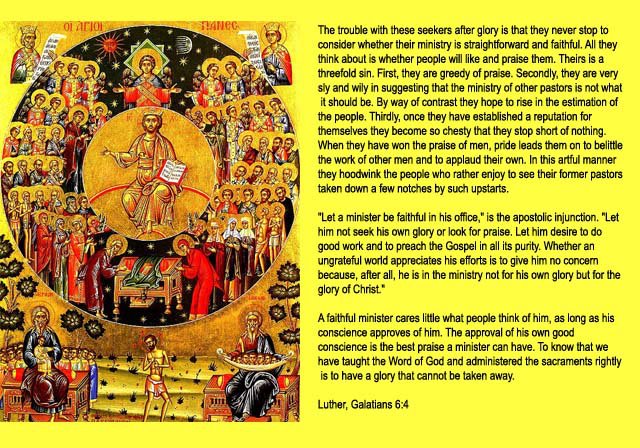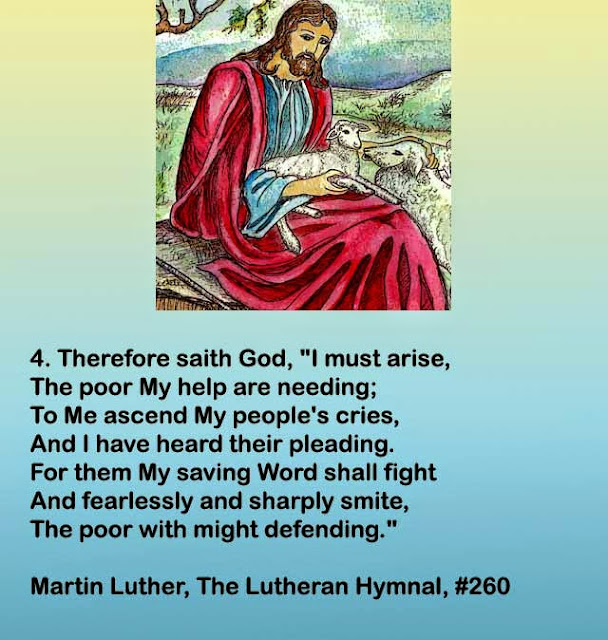 |
| Passavant (1821 - 1894) became a leader in Lutheran doctrine and practice, breaking from the Calvinistic General Synod to help establish the General Council. He was also the founder of The Lutheran magazine, whose name was taken over for the LCA and then ELCA. The Living Lutheran is just too funny a name for ELCA's failing efforts. When Walther was promoting his Objective Faithless Justification and calling it "the pure doctrine," Passavant was weaning people away from Calvinist Pietism and teaching the Book of Concord. He also helped organize more institutions than many people could imagine, including synods - like the Swedish Augustana Synod - and the Chicago Cubs stadium - which began as land he bought for Illinois Lutherans, morphing into Maywood and remorphing as the Lutheran School of Theology Chicago. The Cubs finally won the World Series; LSTC had to slither over to a Roman Catholic combine to hold hands with an equally battered McCormick Seminary. The Ovaltines at the American Lutheran Publicity Bureau Online Discussion Forum (pause to catch my breath) are also giving up their print magazine, as the Wisconsin sect did, since online is faster and cheaper than print. Memories fade a lot faster too, which is excellent for burying scandals. The plagiarized title of Passavant's independent The Lutheran was ironic, given the fact that Passavant's emphasis on Luther's doctrine was replaced by Marxist feminist ideology and named Living Lutheran. Of course, that took time. Christina and I stopped at The Lutheran's headquarters in Philadelphia, in the 1970s. We went to a national LCA evangelism meeting, with the same eventual Fuller Seminary agenda as WELS-LCMS. WELS even used the same graphics - lazy boys. I was learning Lutheran church history in detail because my dissertation at Notre Dame centered on the Social Gospel Movement, A. D. Mattson, and the Augustana Synod - which became part of the LCA. The non-Gospel language of Living Lutheran going online is too precious to overlook. One might pry a morsel of the Means of Grace, faith in Christ, and the efficacy of the Word. But that is like finding an Arkansas diamond (possible - but not likely). Martin Luther’s reforming ideas spread like wildfire in the 16th century because the recently invented printing press enabled mass distribution of his treatises and pamphlets. Since then Lutherans have been informed and guided by the printed word, including generations of magazines bearing the Lutheran name on their covers. Just as Luther embraced new technology, the magazine is adapting to new ways of communicating the ELCA’s message. The format will change, but the storytelling will continue with an enhanced online presence at livinglutheran.org beginning in January 2024. |
Reflecting on the magazine’s approach under his leadership, Trexler said the goal was “sharing ideas and points of view, bringing out the best in the church and its people.” As the ELCA faced one after another challenging issue, Trexler saw the Lutheran’s role as helping “the church make good decisions.”
Each issue included stories about congregations that could be replicated elsewhere, profiles of individuals doing inspiring work, a feature about a global partner and news from the broader ecumenical scene. After a decade in the magazine’s top spot, Lehmann reflected in a final editorial on his gratitude for stories “filled with reports of congregations taking positive action to face their challenges” (The Lutheran, January 2016).
Lehmann’s successors at the editorial helm have all been women. Under their leadership, the renamed Living Lutheran shifted to be even more congregation-focused, as called for by many readers in focus groups and surveys. News about churchwide, synodical and institutional life was balanced with more extensive articles on how congregations and members carry out faithful ministries in diverse contexts. Thinking back on her years with the magazine (from 2016 to 2020), Jennifer Younker is grateful for its “impact of creating connections, a community.” Helping readers grasp that “we’re all united through our faith and we’re working throughout the country and globally,” brought Younker joy, she said. She recalls “little moments” like a story about an ELCA member who started the nationwide Little Free Pantry movement. [GJ - Did you also weep copiously, choking down the sobs?] Kulik shares the sadness conveyed by many readers who emailed and called as they contemplated the loss of the print magazine. But she is also convinced that online delivery will allow the magazine to provide more news in a timely fashion and increase the number of articles and voices that can be offered. “The story will continue,” she said. “We’ll try to keep everybody connected.” |

















































